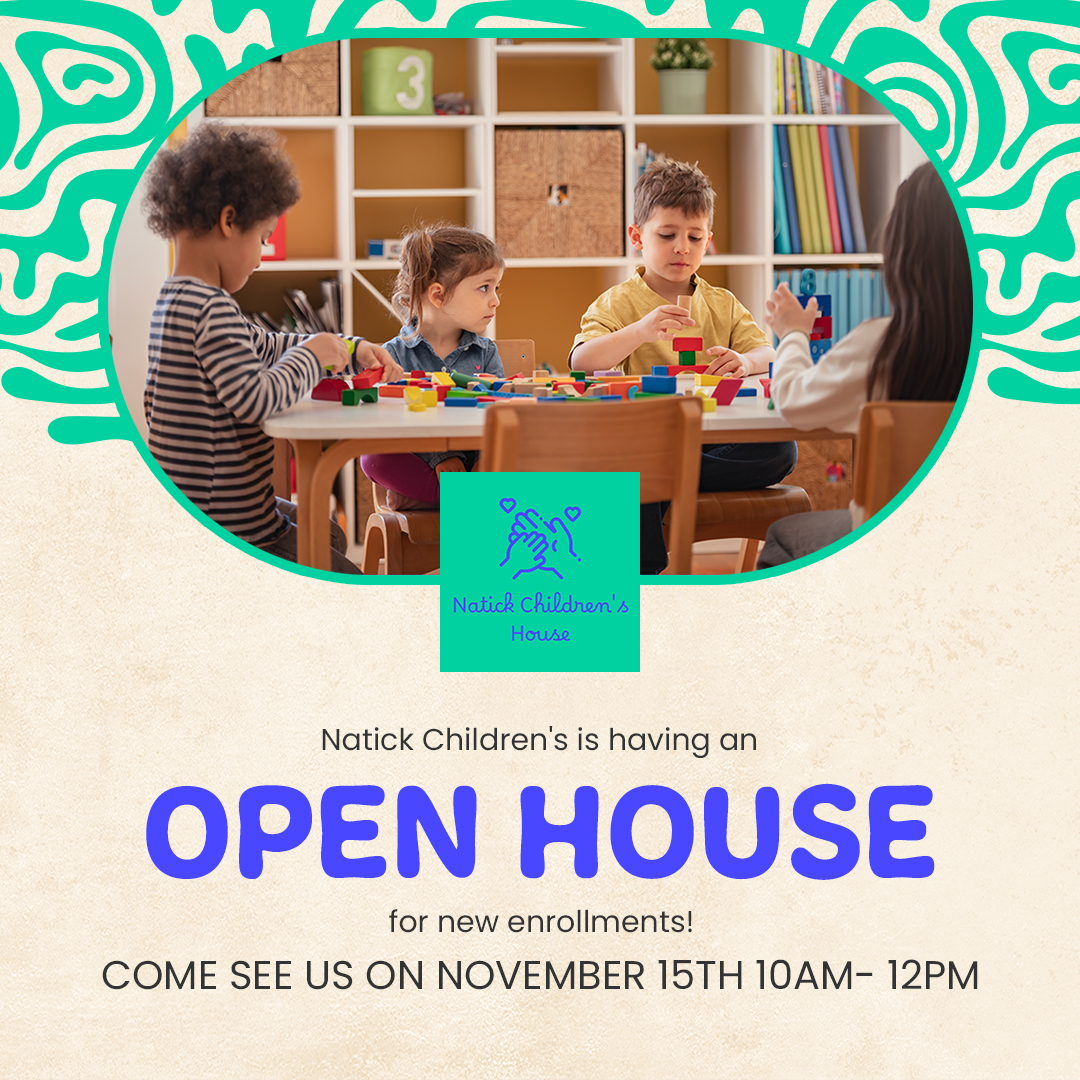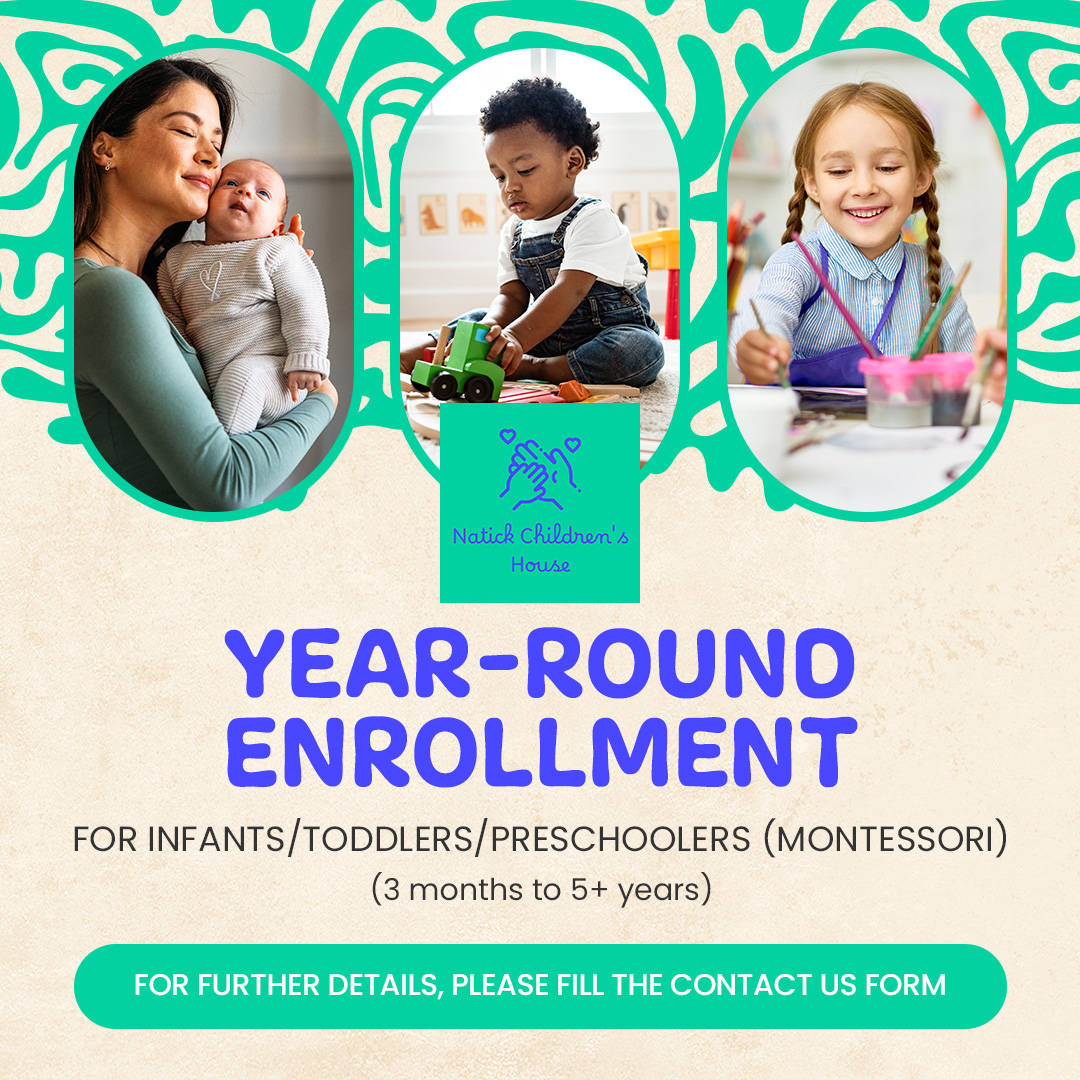
Montessori Preschool Program
We follow child-centered Montessori pedagogy for our preschool children of age 2.9 to 5+ years, which is the most sensitive developmental age of children. The Montessori philosophy which we follow for preschool children fosters rigorous, self-motivated growth for children in all areas of their development, with a goal of nurturing each child’s natural desire for knowledge, understanding, and respect. Children are encouraged to make choices and practice individual decision-making. We follow method of education that is based on self-directed activity, hands-on learning, and collaborative play. The classroom and the highly trained teachers offer age-appropriate activities to guide the process.
A Typical Day in the Preschool Room:
Arrival, Sign In, Health checkup, Free Play
Transitioning period (indoor shoes and handwash)
Morning Work Cycle
Morning Circle Time
Recess (45 minutes)
Bathroom/Handwashing
Lunch/ Cleanup/ Bathroom/Book Reading
Nap or Quiet Time - afternoon work cycle for non-nappers
Bathroom/ Hand Washing/ Snack
Storytime
Workshop (arts & Craft, music, baking, yoga, soccer/basketball)
Free Choice, books reading, Clean up, Departure, Sign-Out.
At the Natick Children's House, our primary program (also referred to as Children’s House) focuses on skill development in the following areas:
Practical Life Skills
Practical life skills are the backbone of our primary program. Children learn to accomplish tasks such as washing dishes, pouring water, cutting flowers, clearing the tables, sweeping the floors, tying shoelaces, buttoning and zippering, and sewing buttons. Practical life skills help children develop their fine motor skills, learn independence, foster social graces, and take care of their school environment.
Sensorial Activities
Montessori sensorial activities are meant to develop all five senses: sight, taste, touch, hearing, and smell. Children use specific materials that have a “control of error,” meaning that the child can check to see if they completed the task correctly without needing to seek a teacher’s assistance. These activities help children become more independent, perceptive, and aware of their environment.
Language Development
During the primary years, children have an incredible gift for rapid language acquisition. The Montessori Method takes full advantage of this developmental window by promoting the use of phonics, learning to write before learning to read (encoding before decoding), and emphasizing the whole language. Throughout the school day, students are exposed to language through reading, writing, word study, the function of words, interpretive reading, and speaking throughout the school day. At Natick Children's House, students learn to read and write through hands-on activities such as the moveable alphabet, sandpaper letters, and metal insets.

Math
Using sensorial materials, math is taught as a concrete methodology and not an abstract concept. The Montessori math materials provide students with a solid foundation of basic mathematical concepts. With its sensorial, hands-on approach, students use Golden Beads to understand number quantities, while exposing students to the decimal system, the categories of unit, ten, hundred, thousand, and the multiplication tables.







